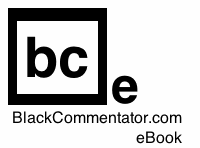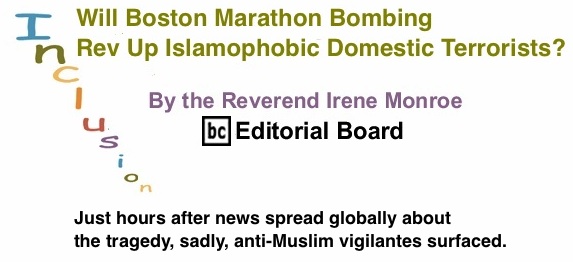




The
Tsarnaev brothers - Tamerlan and Dzhokhar - of Cambridge, MA are, at
present, the sole perpetrators of the Boston Marathon bombings.
Tamerlan and Dzhokhar are of Chechen descent and are also Muslim.
“Please, God don’t let it be a Muslim.” This was Arsalan Iftikhar’s
immediate thought upon hearing of the Boston Marathon bombing.
In fact, since 9/11, Iftikhar has had that thought about every bombing
and mass shooting in every corner of the world, but particularly in his
home country, the U.S. The April 2007 Virginia Tech shooting; the
November 2009 Fort Hood shooting the 2012 Colorado movie theater
massacre; the December 2012 Newton school shooting all had him hoping
the perpetrator wasn’t Muslim. Iftikhar, senior editor with Islamic
Monthly, and popular blogger of “The Muslim Guy,” worried (like so many
peace loving and law-abiding Muslims did) that an onslaught of
Islamophobic vitriol and violence would follow violence committed by a
Muslim.
His fear is, sadly, rooted
in fact. Just hours after news spread globally about the Boston
tragedy, anti-Muslim vigilantes surfaced. NPR reported that just
outside of Boston, a woman wearing a hijab (traditional headscarf worn
by Muslim women) was attacked while strolling with her baby. In New
York, a Bangladeshi man was accosted, resulting in having his shoulder
dislocated by someone who yelled Islamophobic epithets.
Ruslan Tsarni, the Tsarnaev brothers’ uncle, expressed thoughts about
collective guilt when he told news reporters that his nephews brought
shame upon all Chechens.
“They’ve never been in Chechnya. This has nothing to do with Chechnya.
Chechens are different. Chechens are peaceful people.... He put a shame
on our family,” Tsarni told the reporters. “He put a shame on the
entire Chechen ethnicity.”
But the weight of the brothers’ actions bares not only a collective
guilt placed on Chechens as Tsarni expressed, it also places a
collective shame and backlash on Muslims, as Iftikhar worries.
“The term terrorism in post-9/11 America has sort of been co-opted to
really only apply when it’s brown, Muslim men... Already today, I have
received several pieces of hate mail in my email inbox and I think many
brown people in America are feeling very nervous right now,” Iftikhar
told NPR.
And Iftikhar’s fears are not unfounded.
Salon magazine writer, David Sirota, expressed similar concerns. In his
article, “Let’s Hope the Boston Marathon Bomber is a White American,”
he stated, “There is a double standard: White terrorists are dealt with
as lone wolves, Islamists are existential threats.”
And Tim Wise, one of the most prominent white American anti-racist
writers and educators in the United States, wrote a similar article
soon after the bombing titled, “Terrorism and Privilege: Understanding
the Power of Whiteness.”
“White privilege is knowing that even if the bomber turns out to be
white, no one will call for your group to be profiled as terrorists as
a result, subjected to special screening or threatened with
deportation,” Wise wrote. “White privilege is knowing that if this
bomber turns out to be white, the United States government will not
bomb whatever corn field or mountain town or stale suburb from which
said bomber came, just to ensure that others like him or her don’t get
any ideas. And if he turns out to be a member of the Irish Republican
Army we won’t bomb Dublin. And if he’s an Italian-American Catholic we
won’t bomb the Vatican.”
In August 2012, Wade Michael Page, an American white supremacist,
Neo-Nazi and U.S. army veteran, murdered six Sihks and wounded several
others at a Sihk temple in Wisconsin. Sihk males wear turbans and are
often mistaken as Muslim terroists. Page’s act was aptly depicted by
U.S. Attorney General Eric Holder as “an act of terrorism, an act of
hatred, a hate crime.”
Immediately following the
Boston bombing several “Muslim-looking” suspects were apprehended to
the chagrin of law enforcement, who later released them and offered an
apology.
Not much has changed since September 11, 2001.
I’m reminded of a 2002 incident when Ayman Gheith, Kambiz Butt and Omar
Chaudhary were then our poster boys of what it means to be “traveling
while Muslim.” At a Shoney’s restaurant in Calhoun, Georgia, just two
days after the one-year anniversary of 9/11, patron Eunice Stone heard
the three men unabashedly discuss their supposedly conspiratorial plot
to detonate a bomb in Miami. And Gheith, who had a long beard and wore
a Muslim skullcap, cemented Stone’s suspicion.
In an interview on CNN that year , Ayman Gheith said, “I learned that
injustice, regardless against whom, is wrong. It is against us today,
tomorrow it could be against you.”
As I ask myself the question Gheith posed about who will be America’s
next suspect, I am reminded of the pink triangle, a symbol known to the
lesbian, gay, bisexual, transgender, queer community worldwide. The
pink triangle dates back to the Nazi Holocaust when gay men were
prisoners and confined to death camps because of their sexuality.
Relegated to the lowest rung in the death camps’ hierarchy, gay
prisoners were forced to wear the symbol which signified their rank,
thus, making them among the first to die.
Suspicion of the “other” has always abounded in the psyche and soul of
this country. And oddly, the suspicion of the “other‚” does not have to
be a person who is an alien to this country or a person who is a
stranger to this country’s morals or mores. Suspicion of the “other” is
simply predicated on just being different.
And being different, these days, exacts a particular toll not just on
Muslims, or African Americans or LGBTQ people. It exacts a toll on us
all.

BlackCommentator.com Editorial Board member and Columnist, the Rev. Irene Monroe, is a religion columnist, theologian, and public speaker. She is the Coordinator of the African-American Roundtable of the Center for Lesbian and Gay Studies in Religion and Ministry (CLGS) at the Pacific School of Religion. A native of Brooklyn, Rev. Monroe is a graduate from Wellesley College and Union Theological Seminary at Columbia University, and served as a pastor at an African-American church before coming to Harvard Divinity School for her doctorate as a Ford Fellow. She was recently named to MSNBC’s list of 10 Black Women You Should Know. Reverend Monroe is the author of Let Your Light Shine Like a Rainbow Always: Meditations on Bible Prayers for Not’So’Everyday Moments. As an African-American feminist theologian, she speaks for a sector of society that is frequently invisible. Her website is irenemonroe.com. Click here to contact the Rev. Monroe.





